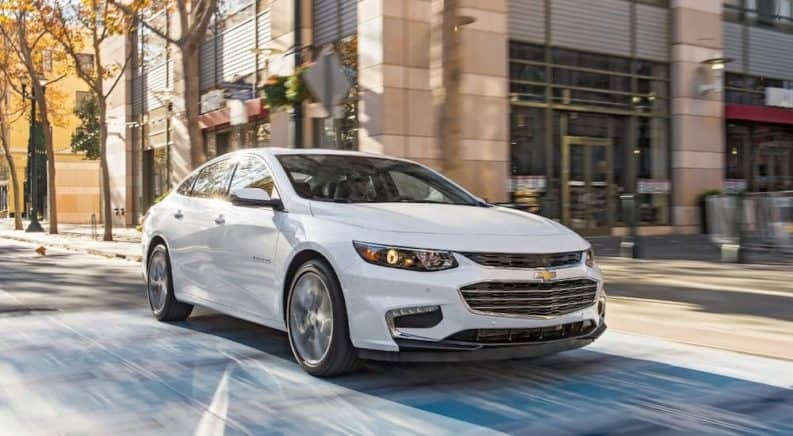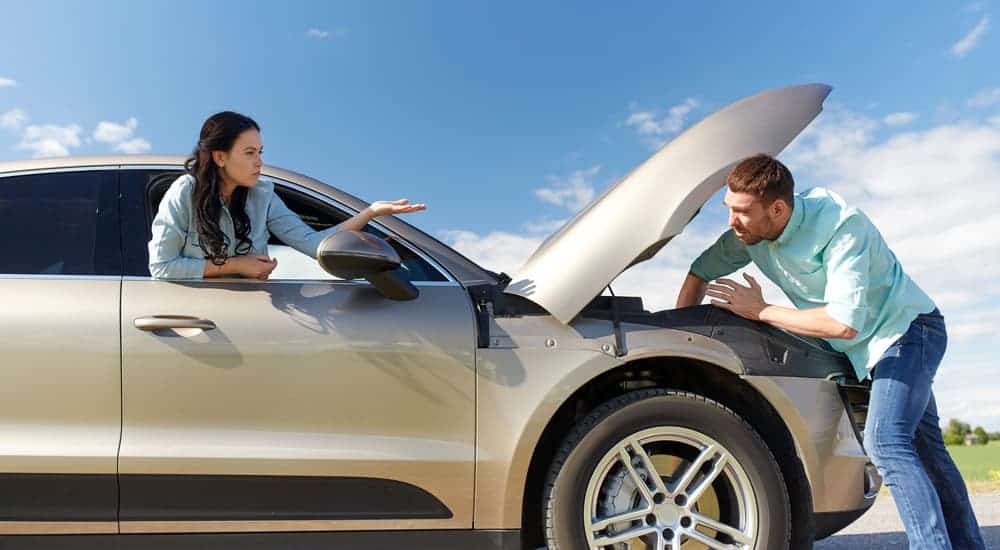Why you should buy a used car
If you’ve been looking at used cars with the intent of purchasing one, it is often times the best way to get your hands on exactly what you want. Not only will it keep more money in your pocket, but sometimes the dealer profits as well. It’s a win-win!
According to the Kelley Blue book, the average cost of a new car was $35,742 in 2018. This is an increase of roughly 2% from the previous year. Even at an all-time high, the average cost to buy a used car was $20,084. There are many factors that are accounted for when determining the price of a used car, primarily mileage and condition. Even if the car is only a few years old, you will still find it to be significantly cheaper.
Many states will charge sales taxes on new cars, but not necessarily on used cars. This could save you hundreds, if not thousands of dollars. It’s important to look into the tax laws of the state you live in to be sure. You will find even more savings on registration depending on how old the car is. The first major drop in registration cost is at three years, and the second drop is at five years.
Often times, the biggest difference in the new model, compared to one you can find used, is technology that you may turn off anyways. Safety features are not something you should skimp on, but many features are unnecessary and can even be distracting if not used properly. If you wait a few years, you can find a used car with those features at a lower cost since the first owner took that hit for you.
Whether you’re looking for a fixer-upper, or a reliable vehicle, it’s important to make sure that the car is in good condition. It’s not rare to find a vehicle that is, ‘like new,’ at an incredible price, just because it was pre-owned. In general, the more miles on the vehicle, the more damage the car will inevitably have. Though there are certification programs and warranties that can help you feel more comfortable with the safety of the vehicle before making your purchase.
There is much more wiggle room when negotiating a used car. Even if you show up without the intention of making a purchase, you might find an opportunity that you can’t pass up. This is far less likely on a new vehicle.
What could go wrong buying used cars?
Car salesmen are known for negotiating in their favor, and sometimes even ripping you off. Although that’s not always the case, they will generally try to get the most money for their company and themselves. This line can sometimes be pushed, though, so be respectful and see how far they can reduce the cost of the vehicle.
It’s important to research reputable places within your area to buy your used cars from. You cannot, and I repeat CANNOT put your trust in just any dealer alone. Shady dealers are well often aware of the laws and know how to dance around them.
Imagine falling in love with a used car, test-driving it, and being told it’s in great condition all at a great price? It seems too perfect not to follow through with but the dealers can smell vulnerability a mile away. It’s important that they don’t perceive you as naive, but even more important is knowing that you’re going to a dealer that is well known for having a good record of customer service and with quality vehicles.
Imagine you drive away in the car, you’re on the highway, and the axle snaps. If you don’t end up in the hospital, you’ll end up at a shop being told that you were just sold a vehicle with a completely rotted subframe. Not only is this a major inconvenience, but incredibly dangerous and takes money out of your pocket, with or without court getting involved.
Although this is a completely hypothetical experience and something I definitely did not just experience myself, it’s a plausible scenario that I promise you don’t want to be involved in. The point is to look into your dealer, local Lemon Laws, and think about hiring a mechanic to inspect the car before signing any paperwork.
Researching the car you want to buy is another key to making the proper decision. How much does that car go for when it’s new? What about the average used price? How many miles does that type of car typically have for the year that it was made? What about a history report? How much do parts cost to repair? These are all things to take into consideration before making the final decision.
What about credit?
One of the first things most people think of when the topic of a major purchase comes to mind is their credit. But what happens if your credit score is low, or you have no credit? Yes, it’s a bad look, but it is also just a number. Sometimes things come up, or you’re just young, so don’t beat yourself up over it. Luckily, purchasing a used car can help build your credit if you find the right dealership or online resource.
Financing can help you to build your score up, especially if you continue to make payments in a timely fashion. It may cost a little more in the long run, so be cautious. Just because you got the loan doesn’t mean that money is considered spendable.
Financing can be great, if it’s a plan that works for you, and some dealers will work with those with bad or low credit. It will increase the total cost you’re paying but it could be worth it to boost your score to help future purchases. Comparing and negotiating with your finance rates can also help you realize what you can really afford so be sure to read the fine print.
You may not always need a co-signer either. It feels good to have someone who agrees to put his or her own credit score on the line, but you’re screwed unless you have your own back, and could also be putting them at risk. They are putting their trust in you to make the payments, but if they’re also assisting with your payments, you could find yourself in a mess. If something in their life goes amiss, you could be scrambling to make payments on your used car, and could possibly take another blow on your credit score.
The takeaway here is this:
If you know what you want, you can find a vehicle that is right for you. You may find some used cars that have great MPG, but maybe you want something that you can take off-roading. It’s important to note that customized, pre-owned cars should be less expensive with aftermarket modifications. Dealers can and will use irrelevant selling points in order to make the sale happen, but if you find the right dealership, that issue shouldn’t arise.
Making the decision to buy a used car can be helpful in multiple ways, you get more experience in dealing with sales people, and how to fight your way through manipulation, you eventually get the vehicle that you want, and you have the ability to boost your credit. If the process is done correctly, it can be extremely beneficial to everyone involved and you’ll drive away happy.
Buying used can save a ton of money, but don’t jump on a deal right away. Do your research on the specific car you’re interested in and look at other options before being coaxed into something that you will regret later on. Consider your own driving habits and budget when deciding what you need. Putting in the time to find exactly what suits your needs will be much more rewarding.





